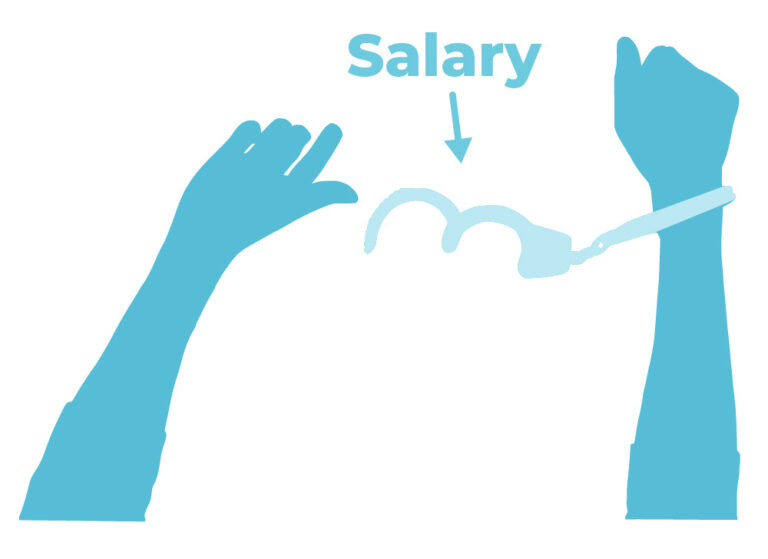The Importance of Life Planning before Financial Planning

Financial planning is essential for superyacht crew. You are going to have a life after your yachting career. If you plan carefully your yachting career should be a life changing opportunity that enables you to live the future life of your dreams.
To action this, you must think about your ideal life in depth and start life planning.
► What are your goals?
► Where would you like to be?
► What would you like to be doing?
Most crew will need the help of a life/financial planner to do this.
Once you have built a life plan, then you know what you are aiming for and the financial planning will fall into place. Your life plan will evolve over time and your financial plan may need to be amended. But with both plans working in tandem and by regularly reviewing them, you will know how much you will need to save to achieve your goals and you can work towards building the financial platform you need. This approach will give you the best opportunity, you may ever have to achieve future financial independence and financial stability.
The superyacht lifestyle is unique, so are the challenges
You are earning a high salary with low expenses and you live where you work. This can present major yacht crew challenges as you can become completely drawn into life on board and forget about looking after your own future. And the industry doesn’t provide for your future…
Another of the yacht crew challenges is that many think their superyacht lifestyle will go on forever. It won’t. Most yacht crew are only in the industry for a relatively amount of time.
(usually about 10 years.) A much shorter time than people working in many other industries. It is vital that you don’t just fritter your money away and lose this life-changing opportunity.
The first step is to identify your life goals and make a life plan. What are your personal aspirations for your life after yachting?
Once you have achieved the goal setting in your life plan, then your financial planning
decisions become straightforward. Quite simply how much are you going to need to save to achieve your life goals over a particular timeframe?
How much money, by when?
Sometimes superyacht crew say, “All I want to do is save as much as possible.” So far, so good. But what are your life goals?
Do you want to have a home bought and paid for, by the time you leave the superyacht industry?
Do you want to have built up enough capital, so that you no longer need to work, but can live your Life on your own terms?
Once you have established these, then your financial goals can run in alignment with your life goals. This is the principal behind Life-goal-driven finance.
Whatever the individual life goals, an overview of most life plans is the desire for long-term
financial stability and financial security. This normally translates into a home bought and paid for and sufficient capital to generate enough income to live a life of dignity.
To generate an income of USD/Eur 50,000 per year, you are currently going to need to save Eur/USD 1,000,000.
Then a home on top of this at least Eur/USD 250,000- 500,000, maybe more…
A vulnerable foundation made strong
Superyacht crew are well paid, but they have no job security. You can be fired at any time on the whim of the owner. This lack of job security is a financial risk in yachting. The key here is to save as much as you can while you can, but ensure that any savings vehicle used, allow you to pause saving without penalty. And to make withdrawals if necessary.
You also need to use more general risk management.
Investment diversification is vital, don’t put all your financial eggs in one basket.
Your level of risk tolerance will also depend on where you are in your long-term life / financial plan. You can afford to take more risk at the beginning of your plan, then ratchet down the risk as you are reaching its conclusion.
A career in yachting is not secure or stable, so it is vital that you have emergency funds,
At least USD/EUR 10,000-20,000 in cash, which you can access immediately.
You also need to think about contingency planning. What happens to your dependents if you die? You may need life assurance cover their financial needs without you to provide for them. Life assurance is a type of insurance that will pay out a lump sum in the event of your death.
What happens to you if you are severely injured and can no longer work in yachting?
You might need disability cover.
The boat may provide some cover, but it is not usually sufficient. For your peace of mind, it much better to organise your own contingency planning. YFSOL can help with all your contingency planning needs.
Leaving yachting
Retirement planning for yacht crew is basically life planning, as many yacht crew leave the industry well before retirement. Your life planning should include building enough capital to generate long-term financial stability and financial security.
As you approach actual retirement, your retirement goals may differ from the ones
In your original life plan, but the capital and assets you have built up during your
Yachting career should enable you to achieve your retirement goals.
How do you achieve your financial/ life goals. You need to find a financial advisor for yacht crew, preferably one that also provides life coaching services. This way your financial advisor will help you build your life plan in tandem with your financial plan and provide life coaching services to help you stay on course to achieve it.
We have many success stories of clients who have moved onto their ideal life after yachting.
If you look at our yacht crew case studies, we have clients who have surfing businesses on the beach, opened bed and breakfasts in many countries, fly aeroplanes, have yoga/wellness centres, are restoring antique furniture, teaching handicapped children to sail…
The possibilities are endless.
To summarise this blog post: To make the most of your yachting career, you must prioritise life planning as the foundation for your financial well-being.
Then building your financial plan, to work in tandem with your life plan, will be straightforward.
Do you need some help to get started? Contact us for personalised financial and Life planning advice here: Get in Touch.






